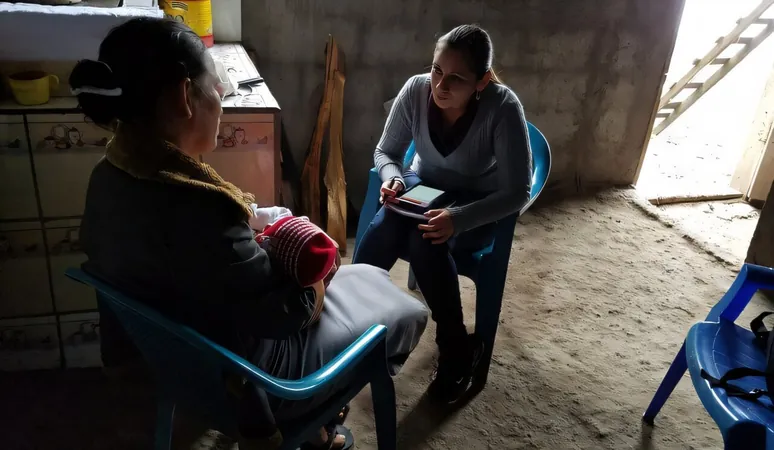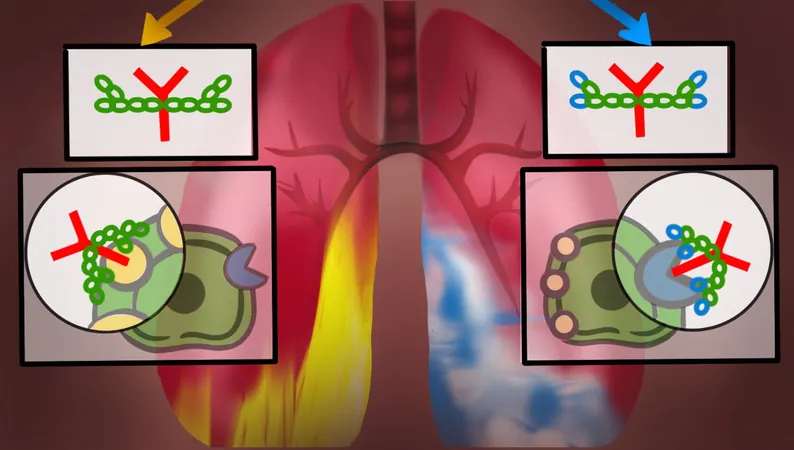
The Alarming Rise of Young-Onset Pancreatic Cancer: What You Need to Know
2024-11-22
Author: Yu
Pancreatic cancer, previously regarded as a disease primarily afflicting older individuals, is now seeing an unsettling increase in cases among those under the age of 50. This trend underscores the urgent need for heightened awareness, early diagnosis, and effective management strategies. As the medical community grapples with this growing concern, understanding the factors contributing to young-onset pancreatic cancer is more critical than ever.
What is Young-Onset Pancreatic Cancer?
Pancreatic cancer is notorious for its late diagnosis and poor survival rates. Traditionally linked to older demographics, recent statistics reveal alarming increases in younger patients. This underscores the importance of delving into the causes and consequences of this troubling shift, paving the way for improved diagnosis and care tailored to younger patients.
Major Risk Factors Contributing to Young-Onset Pancreatic Cancer
Genetic Predisposition
Around 10-15% of young pancreatic cancer patients may have hereditary links, particularly associated with gene mutations like BRCA. Genetic syndromes such as Lynch syndrome and FAMMM syndrome have also been implicated. Genetic testing and counseling for individuals with a family history of these conditions can be crucial in identifying those at heightened risk.
Lifestyle Factors
Contemporary lifestyle choices significantly contribute to the rising cases of pancreatic cancer among younger adults. The increasing prevalence of obesity—a major global health concern—coupled with the rise in diabetes among younger populations presents a clear risk. Lifestyle habits, such as smoking and excessive alcohol consumption, aggravate the risks associated with these factors.
Environmental Influences
Occupational and environmental exposures to harmful substances remain a pressing concern. In particular, jobs involving carcinogenic materials can increase susceptibility among workers. While research into specific causative links is ongoing, it’s imperative that protective measures are enforced in high-risk work environments.
Key Concerns Surrounding Young-Onset Pancreatic Cancer
Late Diagnosis
The subtleness of pancreatic cancer's symptoms often results in late diagnoses. Many young patients may dismiss early signs, thinking they are related to less serious health issues, compounding the challenge of effective treatment when diagnosed.
Lack of Awareness
There is a significant deficit in awareness regarding the signs of pancreatic cancer among younger individuals. Symptoms such as abdominal discomfort, jaundice, unintended weight loss, and reduced appetite are frequently misinterpreted. This lack of knowledge often leads to delayed medical consultations and worsened outcomes.
Psychosocial Challenges
Young patients face unique emotional and psychological issues upon being diagnosed with pancreatic cancer. Concerns about career stability, relationships, fertility, and future life plans can weigh heavily on both patients and their families, requiring robust psychosocial support frameworks.
Research Gaps
Current knowledge about the biological behavior of pancreatic cancer in younger patients is limited. Further comprehensive research is critical in understanding how age influences the disease, its progression, and responses to treatment protocols. Increased funding and focus on this area can pave the way for targeted therapies and enhanced survival rates.
Addressing the Growing Challenge
To effectively tackle the rise in young-onset pancreatic cancer, focused efforts must include:
Early Detection: Raising awareness among healthcare providers and the public about the risk factors and early warning signs of pancreatic cancer.
Genetic Testing: Encouraging routine genetic screenings for individuals with a familial predisposition to pancreatic and related cancers.
Lifestyle Modifications: Promoting healthy habits, such as balanced diets, consistent physical activity, and smoking cessation to reduce preventable risks.
Psychosocial Support: Establishing resources dedicated to the emotional and psychological aspects of coping with cancer in younger patients.
The dramatically increasing rates of young-onset pancreatic cancer signal an urgent public health concern that warrants immediate attention across multiple fronts. By amplifying awareness, driving research, and implementing targeted support systems, we can aspire to achieve better health outcomes for affected individuals and their families.
Stay alert and stay informed—knowledge is power!




 Brasil (PT)
Brasil (PT)
 Canada (EN)
Canada (EN)
 Chile (ES)
Chile (ES)
 España (ES)
España (ES)
 France (FR)
France (FR)
 Hong Kong (EN)
Hong Kong (EN)
 Italia (IT)
Italia (IT)
 日本 (JA)
日本 (JA)
 Magyarország (HU)
Magyarország (HU)
 Norge (NO)
Norge (NO)
 Polska (PL)
Polska (PL)
 Schweiz (DE)
Schweiz (DE)
 Singapore (EN)
Singapore (EN)
 Sverige (SV)
Sverige (SV)
 Suomi (FI)
Suomi (FI)
 Türkiye (TR)
Türkiye (TR)